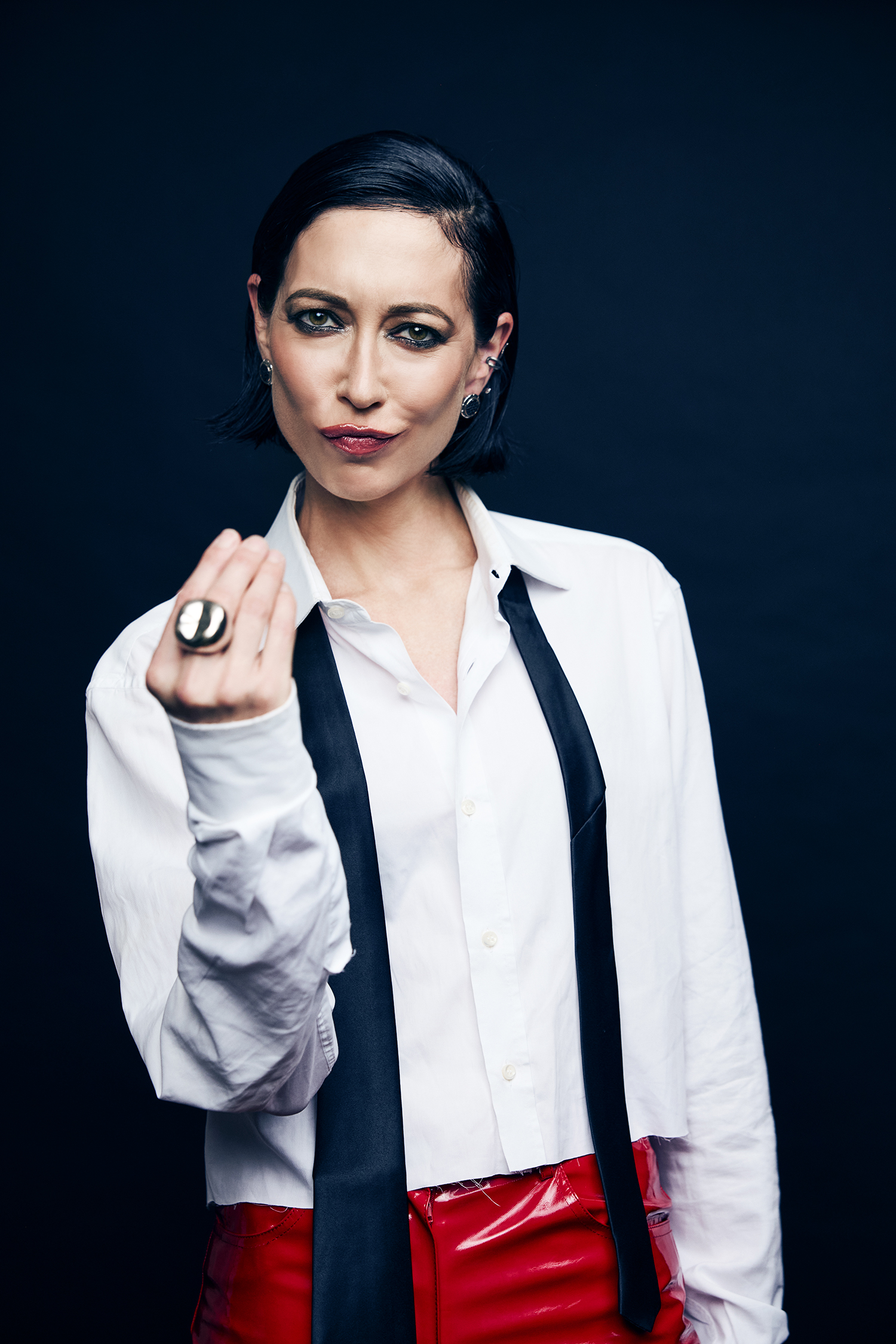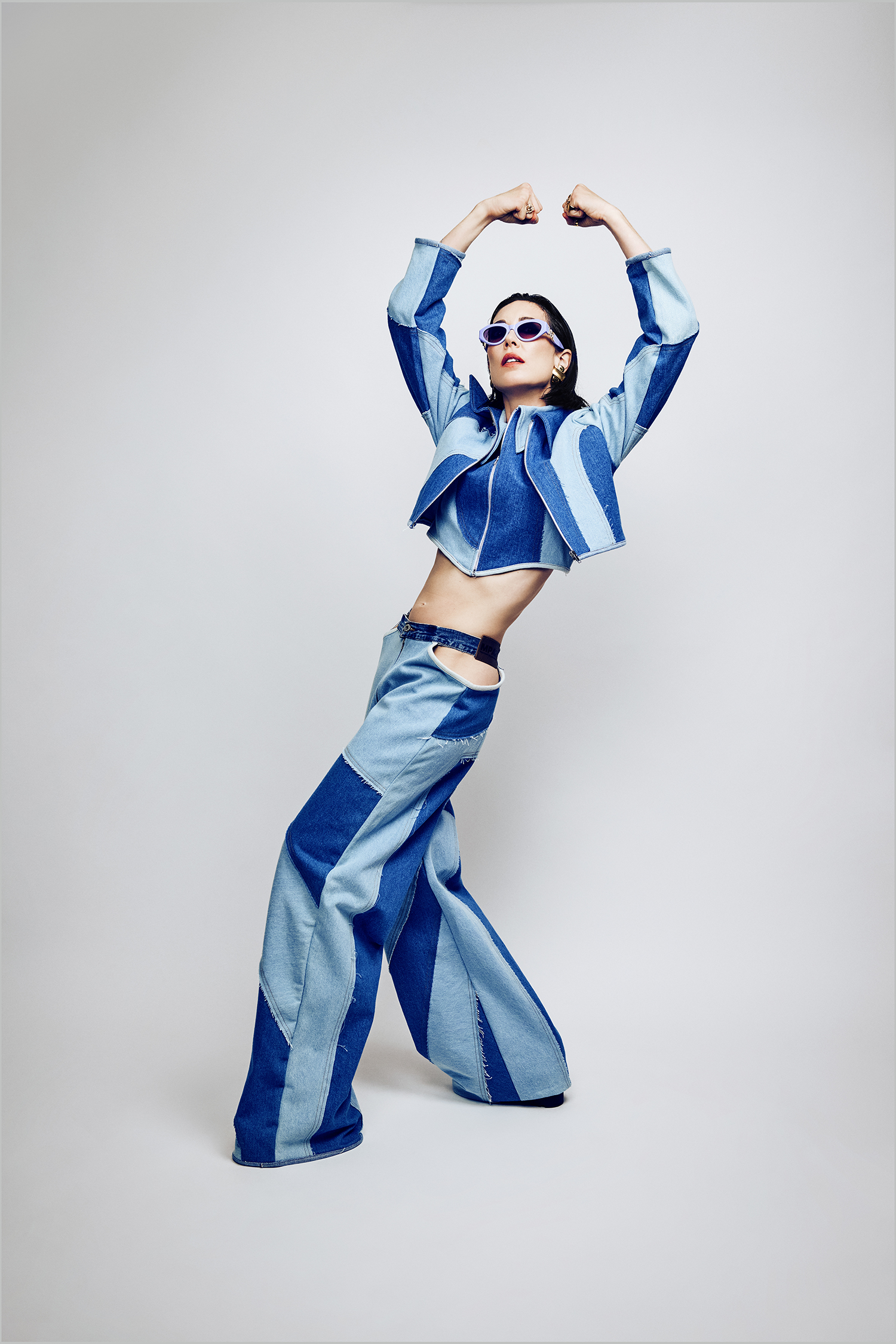Bossi’s music can be described as purpose-driven, with a strong focus on exploring the complexities of femininity and the role of women. Through her songs, she delves into the light and shadow of these experiences, capturing their full depth and nuance. Her work encourages not just enjoyment but also thoughtful reflection on important social themes such as equality and justice. Bossi uses art as a transformative tool, underscoring the importance of authenticity and resilience in a world that often tries to hold women back.
Bossi’s latest album, Tell All the Other Girls, and her new single, She’s Wild is a portal into her experiences, battling cancer, and her activism through projects like House of Bossi, an initiative that unites artists from diverse backgrounds with a common purpose: to drive social change and celebrate female strength.

Starting with She’s Wild, the second single from your album Tell All the Other Girls—just the title alone suggests a powerful purpose. What’s the central message you want listeners to take away from this song?
I hope women who hear this song feel empowered to prioritize their own self-actualization over what society tells us we are allowed to want and who we’re allowed to be. I hope listeners in general begin to see that the wild woman–i.e. the woman who is strong and independent– should be celebrated instead of feared.
The lyrics in She’s Wild tell the story of a woman breaking free from an abusive relationship. What personal experiences or stories inspired you to write such a powerful track?
I’m lucky to be married to the most wonderful man who not only doesn’t clip my wings but actively works to help me break free of the cages that are self-imposed and imposed by society. However, I’ve unfortunately known too many amazing women who have been in abusive relationships to varying degrees. I’ve seen them forced to dim their light because it threatens their partner’s ego or, worse, their own physical safety. For me, the song is a metaphor for the escape every woman must make to free herself from the confines of societal expectations and limitations.
How do you think the historical references in She’s Wild resonate with modern audiences? Can we expect more of these references throughout the album?
The bridge of “She’s Wild,” as you mentioned, takes the song from one woman’s personal experience to the historical context of the “wild woman” and the persecution she has faced because her intuition, independence, and femininity are scorned. From The Scarlet Letter, to the Salem witch trials, and now the fall of Roe v. Wade, society has repeatedly demonized and suppressed women in an effort to quell their power. Sadly, this is still far too relevant in modern times. Women today are dying in hospital rooms across the U.S. because their needs are not prioritized, and they’re denied basic healthcare.
These themes are prevalent throughout the album, from songs like “The Fall of Eve” and “Cassandra,” which explore classical stories of women who’ve been vilified and punished for seeking autonomy, to songs like “Monster in Me” which I dedicate to the members of the U.S. Supreme Court who voted to overturn Roe v. Wade.
Tell All the Other Girls delves into profound themes about the female experience. What other aspects of womanhood did you want to capture in this album?
There is a fair amount of reference throughout the album about the passage of time and grappling with aging. Women’s value is still being measured by youth, beauty, and fertility. As women get older, they become more and more ignored. It’s the opposite for men. This tells me that we still see women as objects. We don’t value them for their ideas, intellect, and experience, and while I think that is slowly changing, we have a long way to go.
I also have a song on the album called “Hold On”, which speaks about losing my breasts to cancer and my ability to bear children–two things long used to define women’s sexuality and worth. Yet, despite that loss, I feel more feminine than ever because I define my womanhood by the power of my voice, the resiliency of my body, and the depth of my empathy–characteristics that speak to the strength of my spirit, not the functions of my flesh.
Do you feel musicians have an active role in driving social change, and how do you think they should go about it? In what ways do you think this is reflected in the music industry, beyond the art itself?
Yes, I absolutely feel musicians and the arts in general have an active role in driving social change. The arts have always been at the forefront of cultural evolution, and artists have been on the front lines speaking truth to power–from “degenerate art” in Nazi Germany to musicians like Bob Dylan, John Lennon, and Yoko Ono fueling protests of the Vietnam War; Bruce Springsteen raising awareness of police brutality; and Lady Gaga advocating for the LGBTQ community. This is one of the fundamental reasons why my husband Nico and I founded House of Bossi out of our home to host artist residencies, live performance series, and more. We really believe that by empowering more art, we can shape the world for the better.
How each artist chooses to go about this will and should be different. For me, it’s finding ways to empower the arts and women. Other artists like Lizzo have expanded our beauty standards because she consistently shows pride in her body. Patti Smith’s continued creativity has proven that older women are cool and relevant as hell, opening the door for more female artists to have careers past the age of 30. It’s not just the art; it’s the way the artist shows up in the world and owns who they are. This gives others permission to do the same. While I’d love to see even more of this, I do think the music industry has embraced the misfit and avant-garde, and I think that is good for society.
You’re also well-known for your commitment to social causes, working with the UN on World Mental Health Day, alongside Nexus Global, the Impact Guild, and through House of Bossi. What has been your most rewarding experience in this space?
Every experience has been rewarding, but I think the one that changed me the most was the residency program we held at House of Bossi for artist Halim Flowers. Halim was formerly incarcerated for 22 years for a crime he didn’t commit and so has a perspective on life that is humbling, to say the least. Our program certainly had many very positive outcomes for Halim, but Halim gave as much to our community as he received. We literally saw people’s hearts soften and minds open as a result of interacting with him and his art. He also reignited my own visual art practice!
You’ve beaten cancer twice, and that’s an immense achievement—congratulations, first and foremost. How do you think these experiences have affected your perspective and voice as an artist?
I often tell people that cancer was the best and the worst thing that ever happened to me. It encouraged me to grab life by the horns, taught me how to live with uncertainty, and revealed my inner strength. That has made me a bolder artist and instilled in me a strong sense of urgency. I don’t think I would have had the courage to return to my music career in the first place had I not gone through cancer. I actually stopped making music for about 8 years!
After facing something as significant as cancer, has your purpose as an artist changed? What message of resilience would you like to convey through your music?
When I first heard the words “you have cancer,” the immediate thoughts that entered my mind were, “I’m not ready to leave the people I love. I haven’t done enough to help others. And I haven’t made enough art!” In one instant, my priorities became crystal clear. I knew that in order for me to die feeling like I had truly lived, I needed to return to being an artist but also to find ways to use my art and resources to make a positive impact. And so I left my corporate job at 37 years old, returned to my artistry, founded House of Bossi, joined other organizations working for change, and reoriented my life. While all of this has certainly come with challenges, I am more fulfilled than I have ever been and am now, thankfully, cancer-free. These messages are reinforced through so much of my music, including “She’s Wild.” The stories may have different circumstances or protagonists, but the message of resilience is the same–you are stronger than you know, and it is never too late to go wild and change your life.
Bossi shows that art can be an act of resistance and a beacon of hope for those looking for inspiration and understanding. From her music to her activism, every step she takes is a declaration of love and solidarity with women and their stories. With She’s Wild, Bossi invites all women to unleash their inner strength and embrace the wild side that makes them unique. Because, as she herself says, there is no greater power than a woman who chooses to be free.

Photos/ Mark Leibowitz
CONNECT WITH BOSSI
WEB – INSTAGRAM – TIKTOK – YOUTUBE
